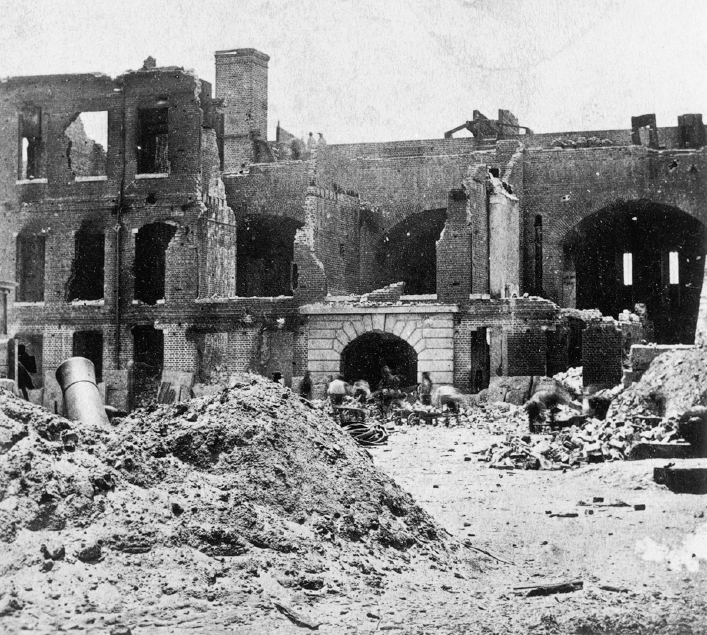Why did both the Union and the Confederacy consider control of the border states crucial?
Printed Page 424

ABRAHAM LINCOLN faced the worst crisis in the history of the nation: disunion. He revealed his strategy to save the Union in his inaugural address on March 4, 1861. He was firm yet conciliatory. First, he denied the right of secession and sought to stop its spread by avoiding any act that would push the skittish Upper South (North Carolina, Virginia, Maryland, Delaware, Kentucky, Tennessee, Missouri, and Arkansas) out of the Union. Second, he sought to reassure the seceding Lower South (South Carolina, Georgia, Florida, Alabama, Mississippi, Louisiana, and Texas) that the Republicans would not abolish slavery. Lincoln believed that Unionists there would assert themselves and overturn the secession decision.
His counterpart, Jefferson Davis, fully intended to establish the Confederate States of America as an independent republic. To achieve permanence, Davis had to sustain the secession fever that had carried the Lower South out of the Union. Even if the Lower South held firm, however, the Confederacy would remain weak without additional states. Davis watched for opportunities to add new stars to the Confederate flag.
Both men wanted to achieve their objectives peacefully. As Lincoln later observed, “Both parties deprecated war, but one of them would make war rather than let the nation survive, and the other would accept war rather than let it perish. And the war came.”
CHRONOLOGY
1861
- – Attack on Fort Sumter.
- – Four Upper South states join Confederacy.
CHAPTER LOCATOR
Why did both the Union and the Confederacy consider control of the border states crucial?
Why did each side expect to win?
How did each side fare in the early years of the war?
How did the war for union become a fight for black freedom?
What problems did the Confederacy face at home?
How did the war affect the economy and politics of the North?
How did the Union finally win the war?
Conclusion: In what ways was the Civil War a “Second American Revolution”?
 LearningCurve
LearningCurve
Check what you know.